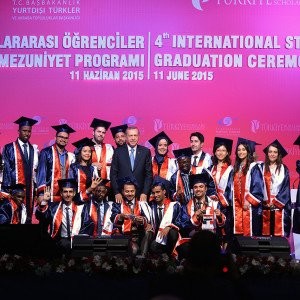Pre-School Bilingual Education Support Program
Yurtdışı VatandaşlarChildren's communication and human relations first begin within the family. In this process, it is important for the child and the parent to know how well the language is used by both parties in their communication with each other. The child can only understand the behaviors of his/her parents and what is happening in the family only to the extent of his/her knowledge of the language. Every word and behavior he/she cannot understand leads him/her to feel insecure towards his/her parents and himself/herself. Therefore, sufficient learning of the language is a prerequisite to maintain healthy family relationships.
Each language entails the values, the ways of life, the worldview and the beliefs of the culture it is connected to. Language not only teaches the child to communicate with his/her environment but also shapes his/her view of the world and enables him/her to immerse into the spirit of unity with the people who share the same language and culture.
The child can understand and express his/her own world, self, joy, excitement, sadness, pastures and dreams as much as his/her knowledge of the language allows it. The desire to explore is most intense at this period. While looking for answers to the question of 'Who Am I?, the language offers him/her a very colorful and efficient garden. In each of these gardens, the child listens to folk stories, hundreds of years of tales, jokes, cultural songs, and hundreds of exhortations that prepare him/her for life. He/she plays games that teach to share; learns cultural habits such as eating-drinking, clothing, celebration and mourning; recognizes rules of living together and code of conduct. The inability of the child to learn his/her language causes him/her to not find a door to enter the garden and deprive him/her of the world inside this garden.
The language and cultural developments of our 0-6 years-old children living abroad are influenced by the multilingual and multicultural environment they live in. In an early age, children begin to hear Turkish which also transfers the language habits and traditions of the family. Both the quality and sufficiency of this Turkish language and the language education of the residence country determines their daily lives. It is also a process that needs to be dealt with carefully in the pre-school period. Knowledge of the language should be supported consciously according to the child's age. The self-esteem and self-worth of children who have mastered both languages improve more wholesome, and they become individuals who understand and adapt easier to both cultures. Children who are raised like this will become active and effective citizens in the societies of the country they live in.
In this view, as a part of Pre-School Bilingual Education Support Program, our presidency encourages Turkish non-governmental organizations' Turkish language activities designed for children in the early ages, which they have been carrying out with their own means








